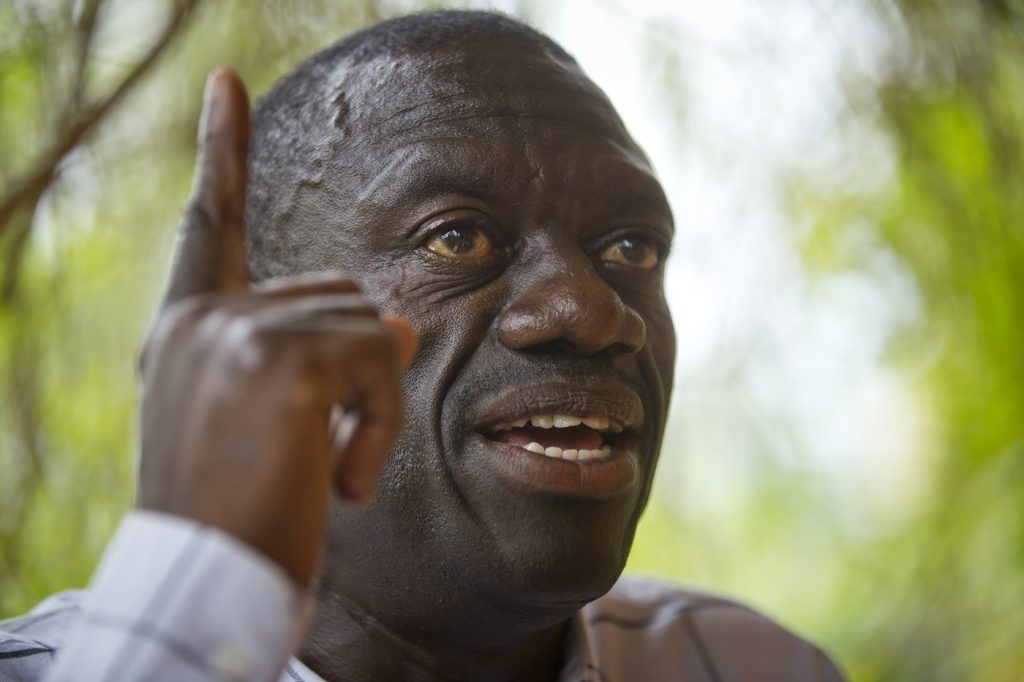KAMPALA, Uganda (AP) – Ugandan opposition figure Kizza Besigye made a brief appearance in a civilian court on Wednesday, where his attorneys attempted to secure his release. However, the presiding judge determined that Besigye was too unwell to adequately follow the proceedings. Following the court session, the visibly frail Besigye was returned to a maximum-security prison located in Kampala, the capital of Uganda.
Besigye's prolonged detention, which has lasted since November 2023, has attracted increasing attention from his supporters, activists, and human rights organizations who claim that he requires medical attention and should be removed from harsh prison conditions. Many express concern that any harm to Besigye while in custody could lead to deadly unrest in the country. His family reported that he has initiated a hunger strike to protest his ongoing detention after the Uganda Supreme Court ruled last month that military tribunals do not have jurisdiction over civilians. Besigye’s legal team asserts that he and others facing charges in military courts should have been released immediately, while justice officials indicate they are reviewing evidence against him to prepare charges in a civilian court.
Kizza Besigye is a four-time presidential candidate and a significant opposition leader in Uganda. He previously served as the primary challenger to President Yoweri Museveni, who has been in power since 1986, until the emergence of Bobi Wine as a rival. On November 16, 2023, Besigye was reported missing in Nairobi, Kenya, before reappearing in a military tribunal in Kampala, facing charges that included threats to national security. He was subsequently indicted for treachery, a crime under military law that can lead to the death penalty.
The Commonwealth, a group of nations that includes Uganda, has urged Ugandan authorities to release Besigye and his co-accused, Obeid Lutale, calling their detention "improper." In a statement, the Commonwealth expressed that their continued detention raises serious concerns about Uganda's commitment to the rule of law, a fundamental principle of the Commonwealth Charter.
Amnesty International has also called for Besigye’s release, arguing that his abduction constitutes a clear violation of international human rights laws and fair trial protections. Despite this, President Museveni dismissed appeals for Besigye's release, insisting that he must stand trial to answer for "the very serious offenses he is alleged to have been planning." Museveni emphasized the need for a swift trial to unveil the facts regarding the case.
Military prosecutors allege that Besigye solicited weapons during meetings in Europe with the intent to undermine national security. Although these claims remain unsubstantiated, the president's son, Army Commander Muhoozi Kainerugaba, accused Besigye of plotting to assassinate Museveni. Kainerugaba went so far as to state that Besigye deserved execution for these alleged actions.
The situation has raised serious concerns among Ugandans regarding political dynamics in the lead-up to presidential elections scheduled for the coming year. While President Museveni is anticipated to seek re-election, there are speculations that he may transition power to Kainerugaba in a non-violent coup. Observers note that a political transition in Uganda appears unpredictable, as Museveni lacks a clear successor within the ruling National Resistance Movement party.
Besigye, who is also a qualified physician and a former colonel in Uganda’s military, previously led the Forum for Democratic Change (FDC), which has long been a dominant opposition party. His history as a critic of Museveni is notable, as he once served as the president's military assistant and personal doctor. Given that Uganda has never experienced a peaceful transfer of presidential power since gaining independence over six decades ago, Besigye's case has significant implications for the country's political climate.











